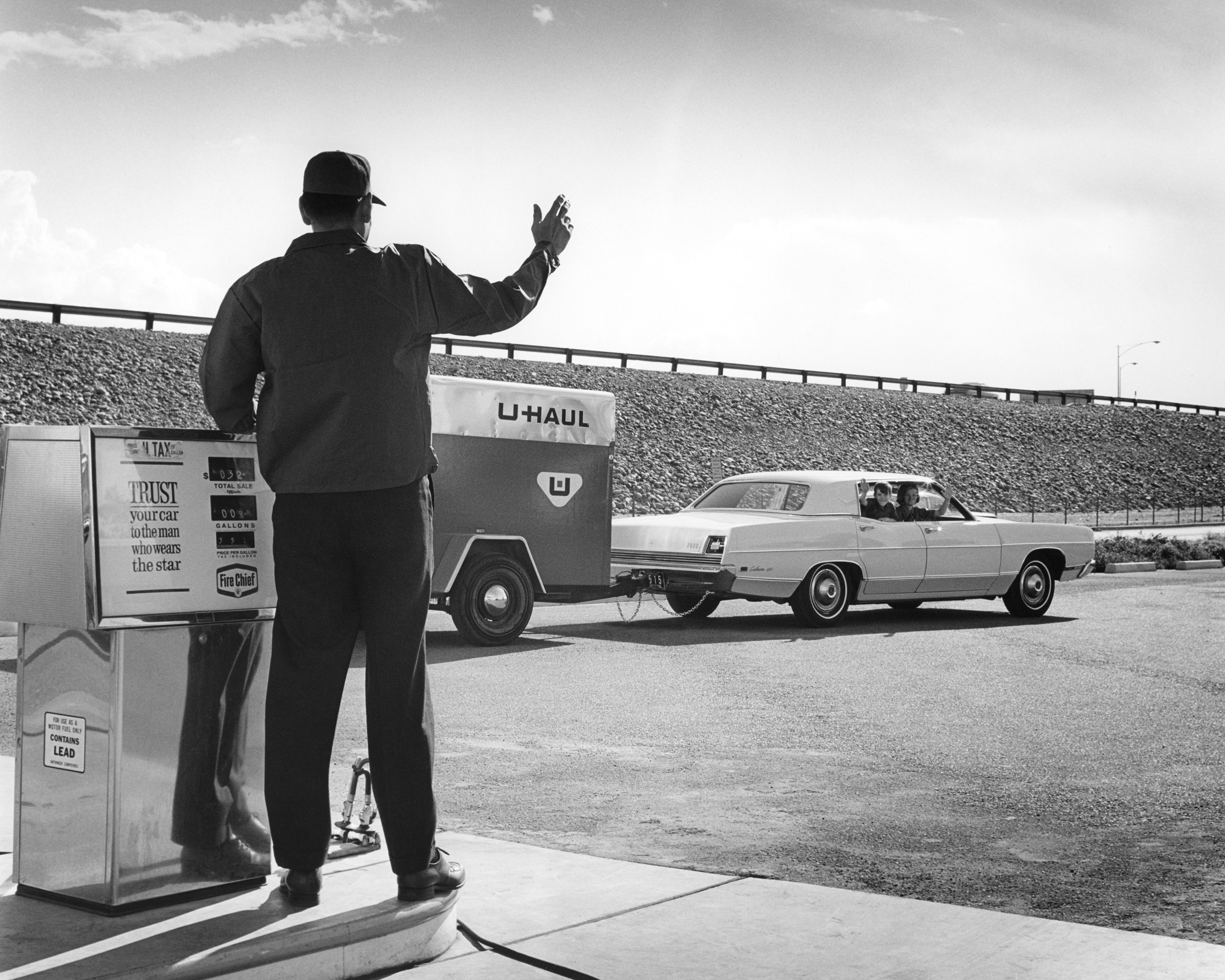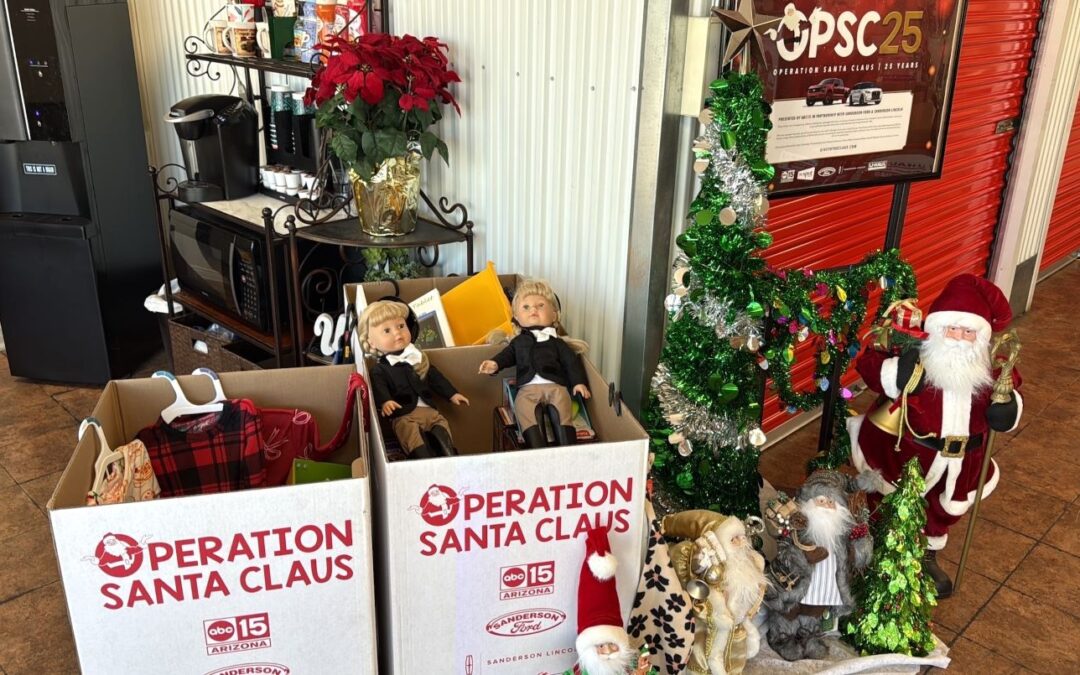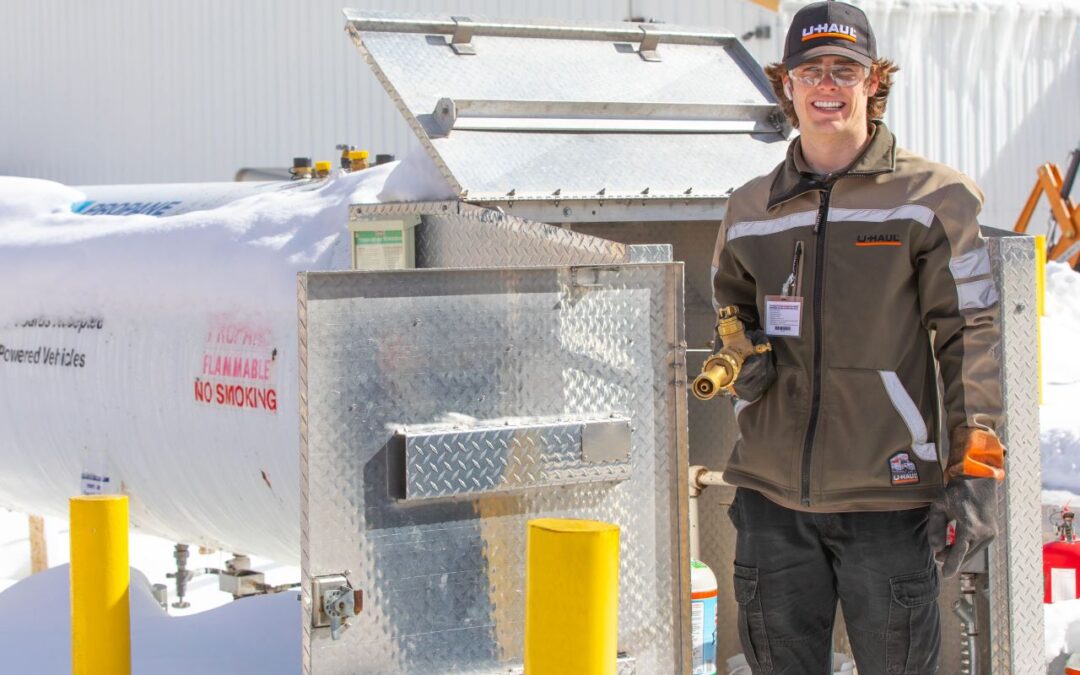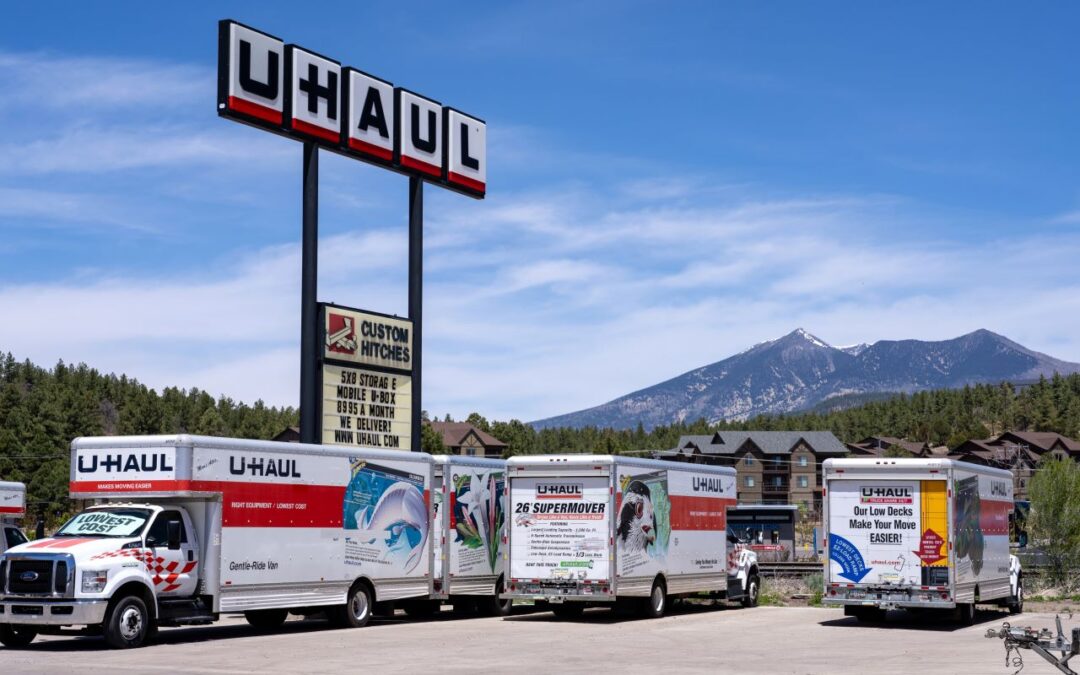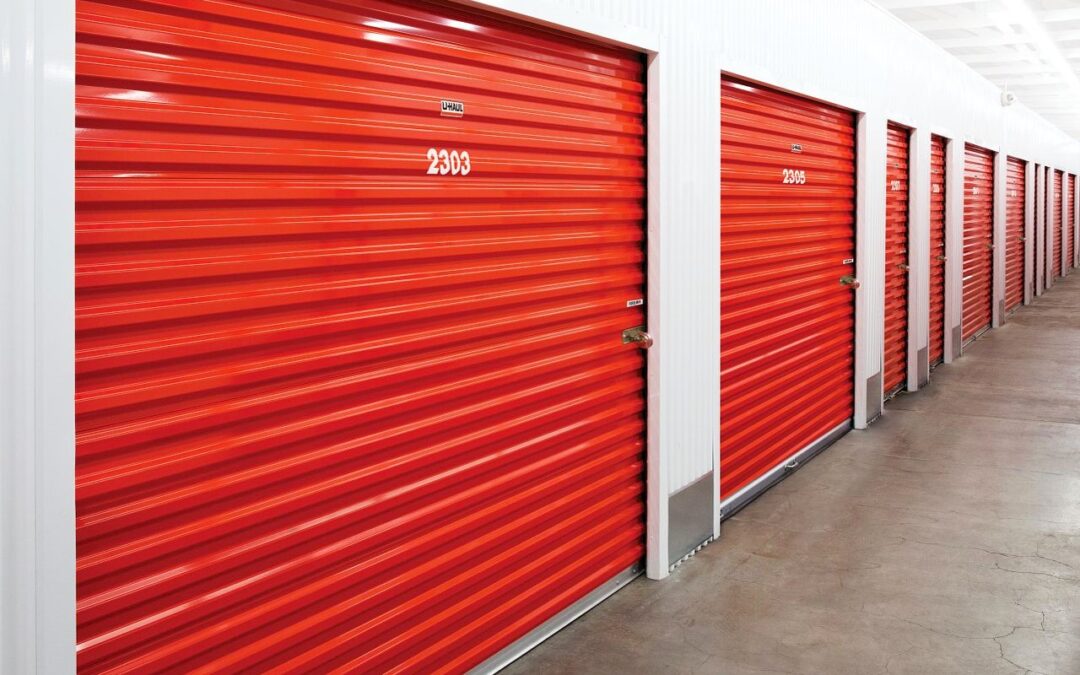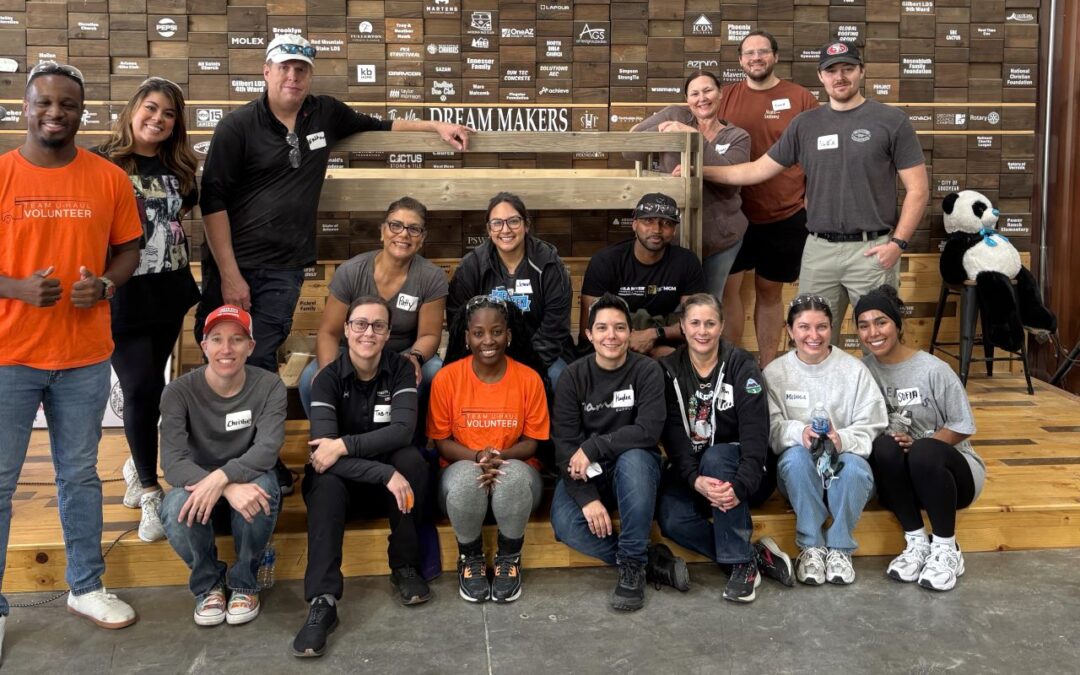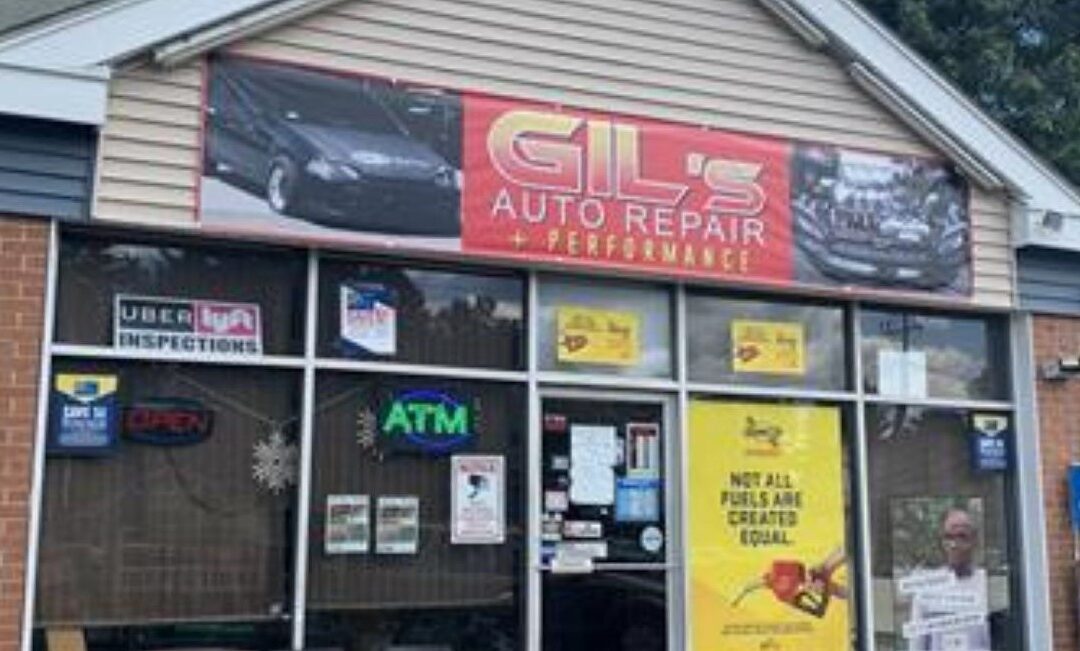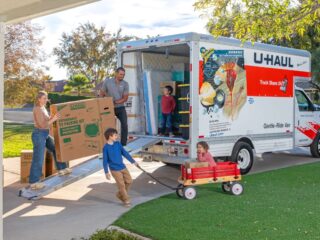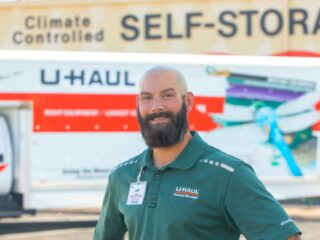Picture this: It’s the 1970s and you drive up to a gas station (or service station as they were called back then) and you see a sign that reads, “Pumps closed.” You have no idea where the next closest refueling facility is, and you have no idea if you’ll have enough gas to get there.
This was the case for many people during the 1970s. War in the Middle East resulted in an oil embargo being instituted by the Organization of Arab Petroleum Exporting Countries (OAPEC) against the U.S. At this time, domestic oil production was declining and Americans were dependent on imported oil. Until the conflict could be resolved, the U.S. was faced with fuel shortages and higher prices. This period became known as the 1973 oil crisis and was later followed by the 1979 oil crisis, or the first and second “oil shocks.”
The effect on the moving industry
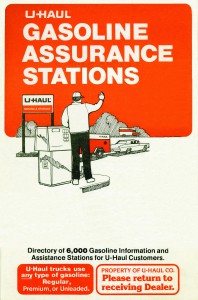
During the oil crisis, the U-Haul created the “Gasoline Assurance Stations” directory to help customers during their moves.
Heavy emphasis was placed on conserving fuel during the oil crisis. Gasoline rationing was implemented in many states through the use of ration stamps. In other states, a colored-flag system was used to indicate if fuel was available and which types of vehicles could refuel. Another system was odd/even rationing where the last number of a license plate determined which days of the month you could refuel.
Of course, U-Haul was quick to respond and began working closely with Federal agencies to give refueling priority to families during their move. Team U-Haul came up with a plan to help serve our customers: the Gasoline Assurance Program. This program provided U-Haul locations with a “Gasoline Assurance Stations” directory of dependable U-Haul Dealers customers could call upon in emergency situations while moving. These service station operators kept U-Haul informed of when they did and did not have gas for sale, so they could better serve U-Haul customers.
During the 1979 oil crisis, along with this program, general managers (GMs) posted their home telephone numbers on U-Haul Store doors with instructions for U-Haul customers to call for help. Even at night and on Sundays, these managers returned to their stores to help U-Haul customers.
DIY moving needed more than ever
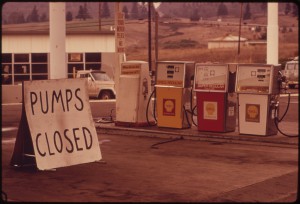
The U-Haul Gasoline Assurance Program helped provide gas to U-Haul customers during their moves when other refueling locations might not be able to serve them.
Fuel rationing during the oil crisis led to strikes in the trucking industry, and nonstriking truck drivers were violently attacked while on the road and at truck stops. Van-line moves were discouraged by transportation officials, leaving movers to rely on do-it-yourself options.
The U-Haul Technical Center sought to reassure U-Haul customers that do-it-yourself moving was the best option during the fuel shortage, and conducted a series of tests measuring fuel consumption of do-it-yourself moves versus van-line moves. The findings indicated that towing a trailer behind a car used 6.5 percent less fuel to complete a 1,000-mile trip than a van-line move and cost 50-75 percent less as well.
During the 1970s, the oil crisis triggered many moves … moves that may not have been possible without the help of the U-Haul Gasoline Assurance Program. This program helped provide gas to U-Haul customers during their moves when other refueling locations might not be able to serve them.
In a 1974 issue of AMERCO World, U-Haul Energy Crisis Coordinator Paul J. Kelley praised U-Haul Dealers for their cooperation during the oil crisis.
“U-Haul Dealers everywhere are responding to the needs of U-Haul customers above and beyond our greatest expectations,” he asserted. “Dealers are going out of their way to help customers who need gasoline. Many have volunteered their stations as fuel depots. This is the kind of attitude that has made the U-Haul System great. We simply couldn’t survive without the cooperation of our dealers.”
Read more about U-Haul history here.
What experiences do you remember from the 1973 oil crisis? Tell us in the comments.


